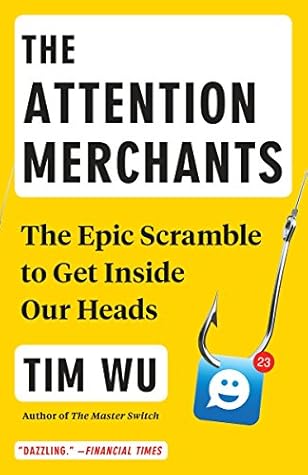We’ve already seen the attention merchant’s basic modus operandi: draw attention with apparently free stuff and then resell it. But a consequence of that model is a total dependence on gaining and holding attention. This means that under competition, the race will naturally run to the bottom; attention will almost invariably gravitate to the more garish, lurid, outrageous alternative, whatever stimulus may more likely engage what cognitive scientists call our “automatic” attention as opposed to our “controlled” attention, the kind we direct with intent.
Welcome back. Just a moment while we sign you in to your Goodreads account.


